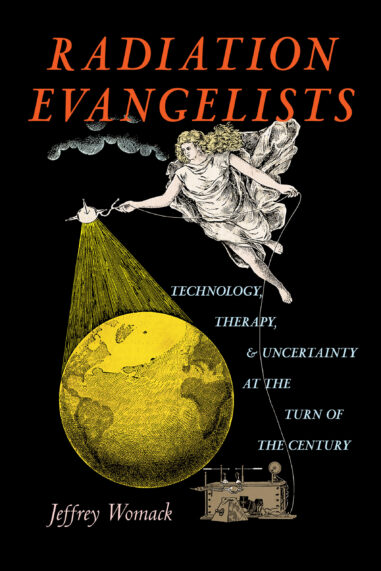Radiation Evangelists explores X-ray and radium therapy in the United States and Great Britain during a crucial period of its development, from 1896 to 1925. It focuses on the pioneering work of early advocates in the field, the “radiation evangelists” who, motivated by their faith in a new technology, trust in new energy sources, and hope for future breakthroughs, turned a blind eye to the dangers of radiation exposure. Although ionizing radiation effectively treated diseases like skin infections and cancers, radiation therapists—who did not need a medical education to develop or administer procedures or sell tonics containing radium—operated in a space of uncertainty about exactly how radiation worked or would affect human bodies. And yet radium, once a specialized medical treatment, would eventually become a consumer health product associated with the antibacterial properties of sunlight.
In this cautionary tale of technological medical progress, Jeffrey Womack reveals how practitioners and their patients accepted uncertainty as a condition of their therapy in an attempt to alleviate human suffering.


